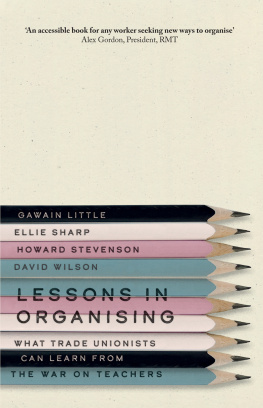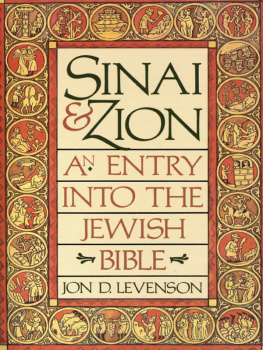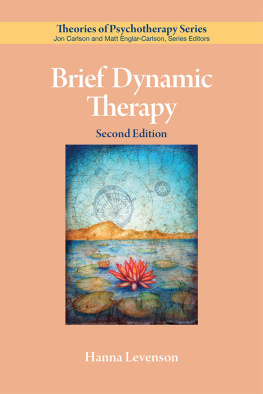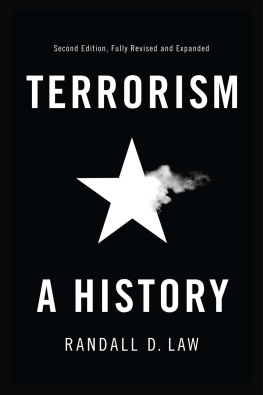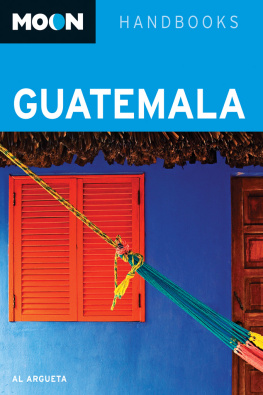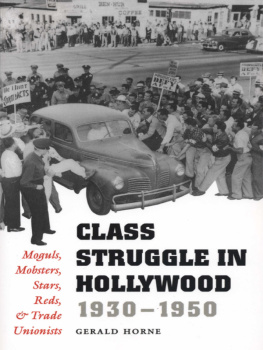TRADE UNIONISTS AGAINST TERROR
1994 The University of North Carolina Press
All rights reserved
Manufactured in the United States of America
Library of Congress Cataloging-in-Publication Data
Levenson-Estrada, Deborah.
Trade unionists against terror : Guatemala City, 19541985 / by Deborah Levenson-Estrada.
p. cm.
Includes bibliographical references and index.
ISBN 978-0-8078-2131-2 (cloth : alk. paper)
ISBN 978-0-8078-4440-3 (pbk. : alk. paper)
1. Trade-unionsGuatemalaGuatemalaPolitical activityHistory20th century. 2. Working class GuatemalaGuatemalaHistory20th century. 3. GuatemalaHistory1945-1985. 4. Violence GuatemalaGuatemalaHistory20th century. I. Title.
HD6548.5.L48 1994
322.2097281dc20
93-32054
CIP
The paper in this book meets the guidelines for permanence and durability of the Committee on Production Guidelines for Book Longevity of the Council on Library Resources.
Deborah Levenson-Estrada is associate professor of history at Columbia University.
cloth 06 05 04 03 02 5 4 3 2 1
paper 06 05 04 03 02 7 6 5 4 3
FOR SAMUEL
Contents
INTRODUCTION
Facing the Devil
CHAPTER ONE
Legacies and New Beginnings, 19441960s
CHAPTER TWO
City Life: The Labor Movements Crucible
CHAPTER THREE
See, Judge, Act: The Young Catholic Worker and Trade Unionism, 1960Early 1970s
CHAPTER FOUR
Possibilities and Repression, 19741978
CHAPTER FIVE
Martyrs and Triumphalists, 19781980
CHAPTER SIX
The Coca-Cola Workers Make and Portray History, 19761985
CONCLUSION
The Unexpected
APPENDIX
Three Life Stories: Constructing Protagonists
Illustrations
May First rally, Guatemala City, 1988
Miguel Mrmol and Antonio Obando Snchez
Locating a means of survival in the city dump
New shacks and new high rises in Guatemala City
An everyday street scene in downtown Guatemala City
Organizing in a city neighborhood
A statue of Mary in the womens locker room at ACRICASA
The customary annual Burning of Judas
Julio Celso de Lon and Jos Angel Berreondo at a JOC meeting
JOC youths welcoming Joseph Cardijn to Guatemala
Labor militants at the La Elegante shirt factory
The strike and encampment at the INCATECU shoe factory
Coca-Cola workers during the 1976 encampment
A banner made by workers at Phillip Morriss TACASA cigarette plant
Miguel Angel Albizures addressing U.S. labor activisits
The empty CNT building in the mid- 1980s
Gregorio Gonzlez and Mercedes Gmez
Coca-Cola workers eating lunch in the plants cafeteria
Coca-Cola workers during the 1984 occupation
Rodolfo Robles
A Coca-Cola worker at Mass during the 1984 occupation
Coca-Cola workers singing at a General Assembly meeting
Coca-Cola workers singing on the roof of the plant
Acknowledgments
My biggest debt is to past and present Guatemalan trade unionists. From the bottom of my heart I thank many women and men for their time, interest, trust, and, in some cases, friendship. Wisdom, however, dictates that I not acknowledge them here by name.
I thank Myrna Mack Chang, assassinated on September 11, 1990, for the warm and witty encouragement that she gave me, and that my memories of her continue to provide me.
For varied kinds of generous support, I am grateful to Emily Berg, Edna Coleman, Marilee Crocker, Barbara Fields, Judith Fleisher, Ted Joyce, Herb Klein, and Karen Nelson. Warren Deans confidence in meas well as his unfailing insight and generosityhas been very important to this work and to my life as a historian. Clara Arenas, Betsy Blackmar, Joshua Freeman, Jim Handy, Marcie Mersky, Barbara Weinstein, and Peter Winn read drafts of the manuscript and gave me excellent advice, most of which I took. Stevie Champion was a wonderful and sensitive copyeditor. I also appreciate the efforts of David Perry at the University of North Carolina Press.
It is a pleasure to record in print that my little daughters Ana and Jasmin have brought me great joy, and that time and again while I was writing this book they saved my sense of humor and of perspective.
Finally, I especially thank my best critic, my husband Samuel Estrada, for his candor, intelligence, and love, and for his power to be compassionate.
Abbreviations
A-DATArchivo, Direccin Administrativo de TrabajoAFLAmerican Federation of LaborAGAGeneral Association of Farm OwnersAGAEAssociation of Nurses AidesAIDAgency for International DevelopmentAIFLDAmerican Institute for Free Labor Development (AFL-CIO)ATRGAssociation of Telegraph and Radio-telegraph OperatorsCACIFCoordinating Committee of Agricultural, Commercial, Industrial, and Financial AssociationsCACMCentral American Common MarketCAVISACentral American Glass IndustryCDICCentro de Documentacin, Inforpress CentroamricaCETEEmergency Committee of State WorkersCGTGGeneral Confederation of Guatemalan WorkersCIDASAAtlantic Industrial CompanyCIOCongress of Industrial OrganizationsCLATLatin American Confederation of WorkersCNDCCCommittee for the National Defense Against CommunismCNRSNational Committee of Trade Union ReorganizationCNTNational Central of WorkersCNUSNational Committee on Trade Union UnityCOJUCOLegal Aid for Workers and PeasantsCONSIGUAConfederation of Guatemalan UnionsCONTRAGUAConfederation of Guatemalan WorkersCRNCommittee on National ReconstructionCSGGuatemalan Trade Union Council (ORIT affiliate)CTCConfederation of Cuban WorkersCTFCentral of Federated WorkersCUCCommittee of Campesino UnityEGPGuerrilla Army of the PoorEGSACoca-Cola Bottling Company of GuatemalaFARRebel Armed ForcesFASGUAAutonomous Federation of Guatemalan UnionsFCGGuatemalan Federation of PeasantsFDCRUnited Front Against RepressionFECETRAGCentral Federation of Guatemalan WorkersFEGUACompany of Guatemalan RailroadsFENOTNational Federation of Transport WorkersFESEBBank Workers FederationFETULIASugar Workers FederationFTCChristian Workers FrontFTGFederation of Guatemalan WorkersFURUnited Revolutionary FrontICAAssociated Civil EngineersICCRInterfaith Center on Corporate ResponsibilityICFTUInternational Conference of Federated Trade UnionsIDESACInstitute for the Economic and Social Development of Central AmericaIGSSGuatemalan Institute of Social SecurityIRCAInternational Railways of Central AmericaIUFInternational Union of Food and Allied Workers AssociationsJOCYoung Catholic WorkerMLNMovement for National LiberationMONAPNational Movement of PobladoresMR-13Revolutionary Movement of November 13ORITInter-American Regional Organization of Workers (AFL-CIO)ORPARevolutionary Organization of the People in ArmsPARRevolutionary Action partyPDCChristian Democratic partyPGTGuatemalan Labor partyPIDParty for Institutionalized DemocracyPRRevolutionary partyPSDSocial Democratic partySAGUnion of Graphic ArtsSAMFRailroad Workers Mutual Aid UnionSPASUnion of Automobile PilotsSTECSAUnion of Workers at Embotelladora Central SASTEGUnion of Guatemalan Educational WorkersSTEGACCoca-Cola Bottling Company Workers UnionUFCOUnited Fruit Company
Introduction:
Facing the Devil
During May and June 1980, when his union at the Coca-Cola Bottling Plant in Guatemala City suffered the worst of its violent history, delivery truck driver Marco Tulio Loza had the following recurrent dream: Im driving through the city and at each corner the devil is waiting for me and he tries to stop me and seize me. He has horns and a mangled, bloody body and at every corner I accelerate and go on, but he is always at the next corner, waiting. Finally I decide to stop and confront him. Then I wake up. Twenty-six-year-old Loza explained to me that his dream was about life. It means you cannot run away from reality. You must confront it. Why do I wake up before the fight? Maybe because Im afraid I might lose. But if I dont fight, definitely Ill lose. The devil never goes away on his own. Five of Lozas fellow trade unionists had been murdered in a five-week period; two of them were tortured to death. At a time when many workers were leaving the union, Loza did not. Decisiveness, solitude, and powerthe devils and Lozaspervaded a dream that encapsulates the drama of the Guatemalan labor movement, a small movement persistently battling extreme violence in order to survive.


